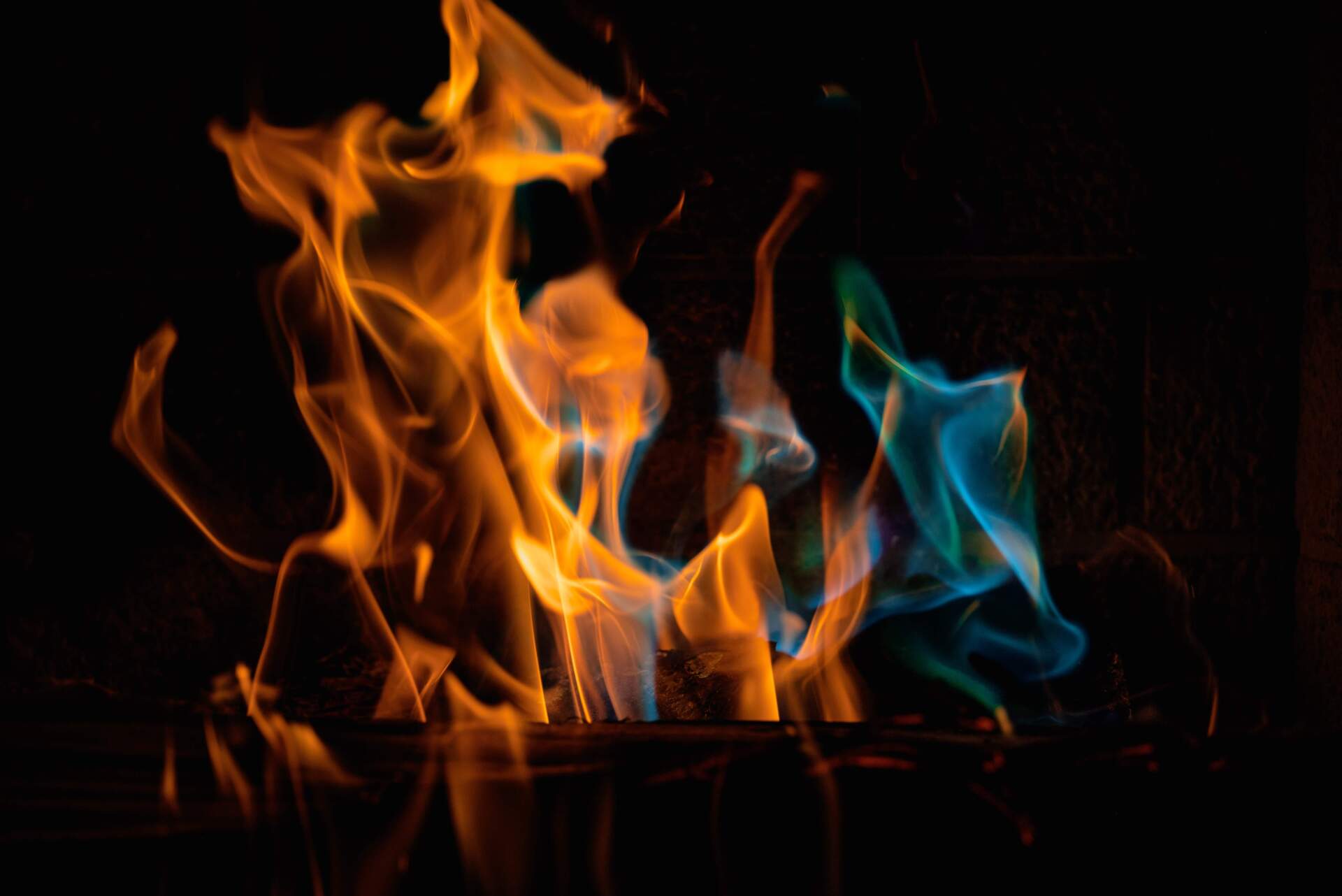Pets and House Fire?

Get Cash Offer
We will get back to you as soon as possible.
Please try again later.
What do they do when a house cat has left home alone and a fire starts? According to the ASPCA, most cats will instinctively run away from the fire. However, some cats hide under furniture or cabinets, potentially leading to grave injury or death. So keep your feline friend safe during a house fire. It's essential to make sure they are always up-to-date on their vaccinations and have an easily accessible escape route in case of emergency.

Do Cats Know Fire Is Dangerous?
Cats have a heightened sense of smell and can detect the smallest amount of smoke in the air, so they will most likely be aware of a fire before humans are.
It's not clear whether cats understand that fire is dangerous. Some cats follow their owners around and stay close to them. So, your cat may follow you out of the house in the event of a fire. But cats are also known to hide when they're scared or anxious, so there's no guarantee they would leave the house with you or alert you to the danger.

Are Cats Flammable or Can Catch On Fire?
Don't shoot the messenger, just stating facts. Cats are basically 50% dry tinder by volume and they can easily be set on fire. They won't catch on fire if they're burned at a temperature above their tolerance level. Their fur is flammable. However, keep in mind that cats can experience severe burns if they contact heat sources too hot for them. For example, if a cat comes into contact with an open flame, such as a candle or fireplace, it will suffer burns if the flame is close to the skin.

What Happens When Cats Encounter Flames?
Cats can get singed by flames, just like humans can. Singeing occurs when an animal's fur comes into contact with open flames at close range. Unfortunately, burning is excruciating for cats and other animals. If your cat experiences singeing, keep in mind that they will likely have hair loss in the area where the singe occurred.

Can Cats Sense a Fire?
Yes, cats can sense a fire and will usually escape, or at least attempt to escape, when they detect the smell of smoke. It is because cats are sensitive to the odor of smoke and some other scents that humans cannot see.
Cats will also be sensitive to the heat, noise, and vibrations accompanying a house fire.

What Do Cats Do When There Is a Fire?
The answer may shock you. But, first, we need to examine the question. What do cats do when there is a house fire? They don't usually stay around and wait for the fire department to rescue them. They hide. If they are outside the house, they will run away and hide somewhere else; if cats are inside, they will find a hiding place.
According to the ASPCA, more than 500,000 pets are affected by fires. About half of these animals die. They don't die because they get burned (although many do); they inhale smoke and toxic fumes and because their airways are blocked by debris or other material. The survival rate for pets in fires is about 10%--and most of those animals have been rescued by fire fighters or other rescuers who have heard them crying or seen movement.

Do Cats Usually Survive House Fires?
House fires are a genuine danger for cats, as they are for any other living creatures in the home. In fact, according to the National Fire Protection Association, house fires kill an estimated 500,000 animals each year in the United States alone. While most of those deaths are due to smoke inhalation or burns, cats can also perish in a fire if they become trapped and can't get out.
Many cats do survive house fires, especially if they are given time to escape. Cats typically have a sixth sense of danger and often flee a burning home before it becomes too dangerous. If your cat is ordinarily skittish or wary of strange noises, that may be an even stronger indication that they sense danger.
If your cat does become trapped in a burning home, there is always the chance that firefighters or other rescuers will find them and get them out of fire safety. However, if your cat does not have any identification tags or microchips, there is a good chance they will end up at a local animal shelter.
If a fire occurs and causes significant damage to your house, it may indeed be time to consider
selling the property.

It is a question that is often asked of firefighters and other first responders. Without exception, the answer is yes; but cats have different instincts than people when it comes to an actual fire.
When smoke alarms are present, most people can escape a house fire. However, cats don't always react in the same manner as people. Cats tend to hide when they sense danger, so they may hide in the basement or under furniture when a fire starts. In addition, the smoke from house fires can be toxic and cause disorientation and panic.
WE CAN HELP WITH ANY SITUATION AND WE'RE READY TO GIVE YOU A FAIR CASH OFFER!
Enter Your Information Below it is Quick, Easy & Free!
Get Cash Offer
We will get back to you as soon as possible.
Please try again later.
It is essential to get everyone (and every pet) out as quickly as possible in a house fire. If you are able, you should try to catch your cat and put them inside their cat carrier for transport. Once everyone is safe outside, call 911 or the nearest emergency services number immediately.
Cats are naturally curious creatures, so it's not unusual for them to try to find out what is going on when they hear things like sirens and see flashing lights. However, once they realize that something is amiss, they'll often run away from the noise and commotion as quickly as possible.
Cats are curious creatures and are known to have nine lives. However, no scientific evidence proves that cats can survive a house fire.
Cats, like any other animals, need oxygen for survival. When the smoke from a fire rises, it contains carbon monoxide poisoning (CO) and hydrogen cyanide which is highly poisonous to humans and animals.
The CO in the smoke replaces the oxygen in the air and makes breathing difficult. Even if the fire does not burn them, cats can die from inhaling smoke and CO if they do not get out of the house fast enough.
Cats are naturally curious about everything, including fire. They see the flames and tend to be mesmerized by them.
However, cats don't understand fire as humans do. They don't know that they'll get burned if they get too close. Instead, they see something moving, and they have to investigate!
That's why it's essential to keep your cat away from fireplaces, flameless candles, and other open flame sources.
Smoke inhalation can cause severe damage to your body, and it can take years to recover from it. Smoke inhalation causes your lungs to fill up with fluid, making it difficult to breathe. It also causes swelling in your windpipe, making you cough and wheeze.
Finally, it will cause you to gasp for air, making it harder to breathe even more! The worst part about smoke inhalation is that it happens so quickly that there isn't much time for anything else but panic.
The best way to save a cat from a house fire is to prevent the fire from happening in the first place. Check your smoke detectors regularly, and check your electrical outlets for overloaded plugs. Ensure that you have an escape plan for your pets and keep them away from any candles or open flames. If there is a fire, call 911 as soon as possible.
It depends.
Experiencing a house fire caused by a pet can be distressing, and the aftermath can leave you wondering about the best course of action. While dealing with the emotional impact, practical considerations also come into play. If your home has been damaged by a fire caused by a pet, selling the property can be a viable option to move forward. Streamline the sale of your fire damaged property by connecting with specialized buyers who understand the unique challenges you face. They can offer a swift and hassle-free solution, allowing you to focus on rebuilding and finding a new home where your pet's safety can be better ensured. By opting for this path, you can discover the best approach to selling a fire damaged house and turn a difficult situation into an opportunity for a fresh start and a brighter future."
Symptoms of the most common cause of smoke inhalation in Cats House fires include:
- Difficulty breathing
- Fast breathing
- Bluetongue
- Drooling
- Gasping for breath
All Rights Reserved | Fire Cash Buyers





